The Wii - The Console that Changed an Industry and Put Nintendo Back On Top
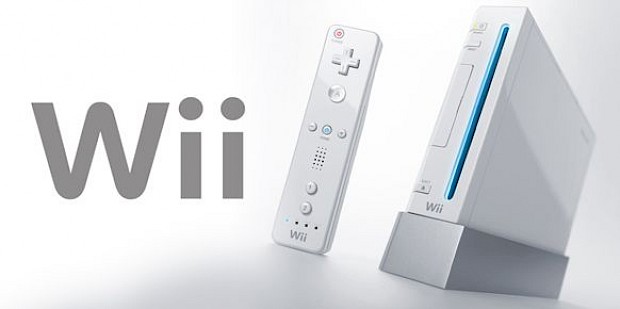
Posted 24 Nov 2012 at 13:00 by Zechs Merquise
It was 2006 and Nintendo were the underdogs. The Gamecube had ended up selling fewer units than the original XBOX and people were speculating that its successor could be Nintendo's last throw of the dice in the home console market. Well if that was the case, Nintendo went all in, threw double sixes and ended up hitting the jackpot.
Usually when a new console comes out it changes the games we play, the system we play them on and little else. But Nintendo went further; they changed the way we play games. This radical approach not only stunned the industry, but it captured the imaginations of the wider public and actually changed the demographic of those playing games.
Let's not beat around the bush, technology is great, but it is content that sells technology. Nintendo's trump card in this regard was Wii Sports. Not since the original Super Mario Bros on the NES has a game had such a massive effect on the industry. This game helped to sell nearly 100 million Wii consoles and for the first time made gaming accessible and enticing to those who had not traditionally played games. The sheer simplicity, fun and clean sharp visual charm were an incredible draw. Being able to pick up a controller and use it as you would a real life object seemed so simple and so obvious it felt natural for anyone to jump on board and enjoy the fun. Playing the system was like turning on a light switch for some, once you had played Wii Sports it all seemed to 'click'. So much so you wondered why no one else had ever done it before?
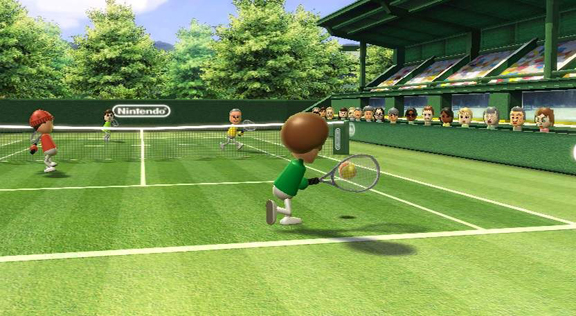
The people queuing for consoles were no longer just children and young males. Parents now joined the queues, not just to buy the consoles for their children but to enjoy them for themselves. Girlfriends began nagging their boyfriends to let them join in and have a go. Even pensioners who had never touched a controller before had begun to play. It was like in one joyous moment Nintendo had destroyed the stereotype of gaming being the preserve of the spotty teenage boy in his dimly lit bedroom.
Nintendo weren't done there, they had bigger plans in the pipeline and these plans would go on to shape the industry almost as much as Wii Sports did. When Nintendo unveiled Wii Fit and the Balance Board it was another landmark moment. Gaming had always been something that was blamed for ill health and a lack of physical activity and Nintendo were set on destorying that stereotype too.
Wii Fit allowed people a chance to weigh themselves and properly exercise in their own home similar to a fitness DVD but much more interactive and genuinely helpful. Wii Fit and the Balance Board flew off the shelves. Never before had such an expensive additional device for a console been purchased in those quantities. Suddenly people were using gaming in order to improve their fitness and stories of people's incredible weight loss littered the tabloid press. Nintendo had not only made gaming fashionable, but it had made gaming healthy. The naysayers began to claim these titles were merely 'lightning in a bottle'. But when Wii Sports Resort went on to sell over 30 million copies worldwide and Wii Fit Plus sold over 20 million, it was clear Nintendo hadn't just struck lucky once, they had worked their magic and come up with a solid winning formula.
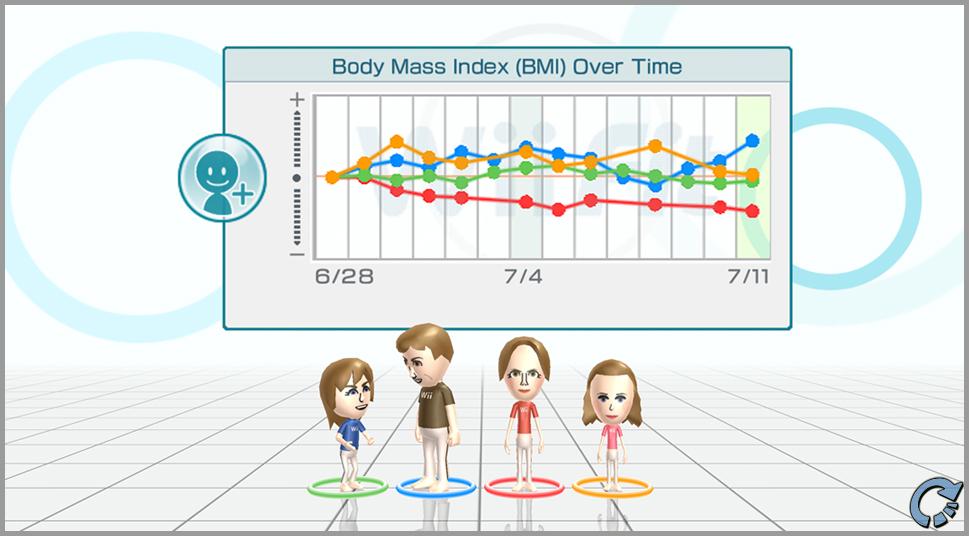
The Wii had not just given birth to motion control and the wave of fitness titles that flooded the market in the wake of Wii Fit. The Wii also pushed the boundaries of gaming in other directions too. Mario had always been at the forefront of every great leap forward Nintendo had made and he was not going to be left out on the Wii. While it had seemed the 3D platerform genre had gone a little stale by the end of the previous generation Nintendo was about to inject some life into it when they unveiled Super Mario Galaxy. It was obvious that they were not just about motion control for the masses or "casuals" - they were still the worlds greatest software company.
Super Mario Galaxy was such a seminal title that sitting down with it for the first time left players awestruck. Galaxy threw out all the conventions we were used to in a 3D platformer and then went on to rebuild and redefine them in an almost perfect way. The critical acclaim for the game was on a par with the praise garnered by The Legend of Zelda: Ocarina of Time which is widely agreed to be one of the best games of all time. But the most important thing about Super Mario Galaxy was it took gaming in a different direction than other developers were going. Whilst other developers chased photorealism, gritty Hollywood plots and grey and brown colour pallets, Nintendo's mustached mascot exploded onto the Wii in a colourful blast of fun and sheer playability.
Nintendo wasn't finished there. Mario may have redefined gaming in 3D, but he also was going to lead the rebirth of console 2D gaming, something that many believed had died with the SNES. New Super Mario Bros. burst onto the Wii, the first 2D Mario title on a home console in three generations. It went on to sell over 26 million units - to put that into perspective it's more than the entire Gears of War series combined.
Soon followed Donkey Kong Country Returns, Kirby's Epic Yarn, Kirby's Adventure, Klonoa and Rayman Origins. The classic 2D platforming we grew up with was back with a bang! Software was flying off shelves as the Nintendo experienced the kind of sales other publishers dream of. Eight Wii titles sold over ten million units worldwide - that excludes Wii Sports which became the largest selling game of all time.
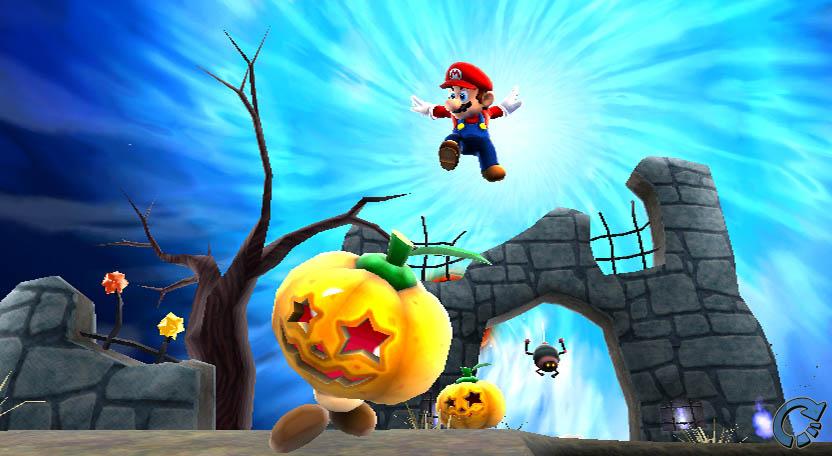
The Wii wasn't just about Wii Sports, Wii Fit and the rebirth of 2D gaming though, it was so much more. The Wii Remote was such a versatile controller it managed to bring new and exciting ways to play in whole array of different genres. Playing Resident Evil 4 on Wii after experiencing it on the Gamecube felt like the first time you rode you bike without stabilisers. Gone was the clunky analog aiming and headshots were now pulled off smoothly with a natural adjustment of your wrist. It was the same for FPS titles. When first exploring the barren planets in Metroid Prime 3 or stealthily picking off guards in Goldeneye it felt liberating to be able to move, look and aim in such a natural manner, no longer was your weapon glued to the centre of the screen - it was as if the Wii remote had removed your invisible shackles.
The Wii Remote brought many other new ways to play. It was a steering wheel in Mario Kart Wii and a torch in Silent Hill: Shattered Memories, a game that redefined psychological horror. It was a gun in House of the Dead Overkill, a darkly funny and graphic shooter and it was a magical paint brush in Epic Mickey, a love letter to Disney fans. The Wii Remote was also a sword, something that it imitated much better with the integration of Motion Plus. This was shown off best in the Wii's magnificent swan song - The Legend of Zelda: Skyward Sword. When certain quarters were claiming Nintendo had run out of steam they yet again showed the world just what they were capable of. Skyward Sword not only redefined the structure of the classic Zelda game, but also showed gamers just how involving correctly implemented motion control swordplay could be.
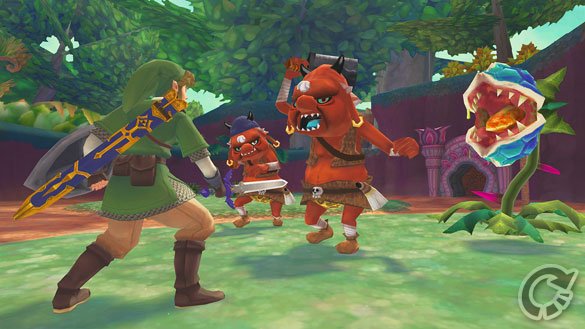
One concession the Wii made though was in the system's level of graphical power. But strangely this led to games being developed with a different ethos. Rather than focusing on the number of polygons or the detail of the textures, more developers focused on the art style of the games resulting in some wonderfully unique and inventive visual styles. Games like Madworld, Kirby's Epic Yarn, Red Steel 2, DCKR and Skyward Sword were all visual masterpieces due to creative and beautifully unique art styles.
Throughout the life of the Wii the console maintained not only a high quality of software releases but also a diverse portfolio of games - giving it a truly unique library. With well over 800 million games sold in total, from Call of Duty and FIFA to Monster Hunter 3 and the magnificent Xenoblade Chronicles, there really was something for everyone and plenty of sparkling gems that could only be found on the Wii.
Nintendo went into the generation as the underdogs - trailing after Sony and Microsoft. They came out of it with not only the biggest selling console, but also as the trend setters. They refocused the whole industry and forced Microsoft and Sony to rethink their strategies and adopt their own new ways to play. Nintendo had yet again changed the industry and proved why they are the world's greatest games company. The Wii didn't just reinvent Nintendo, it reinvented gaming .






















